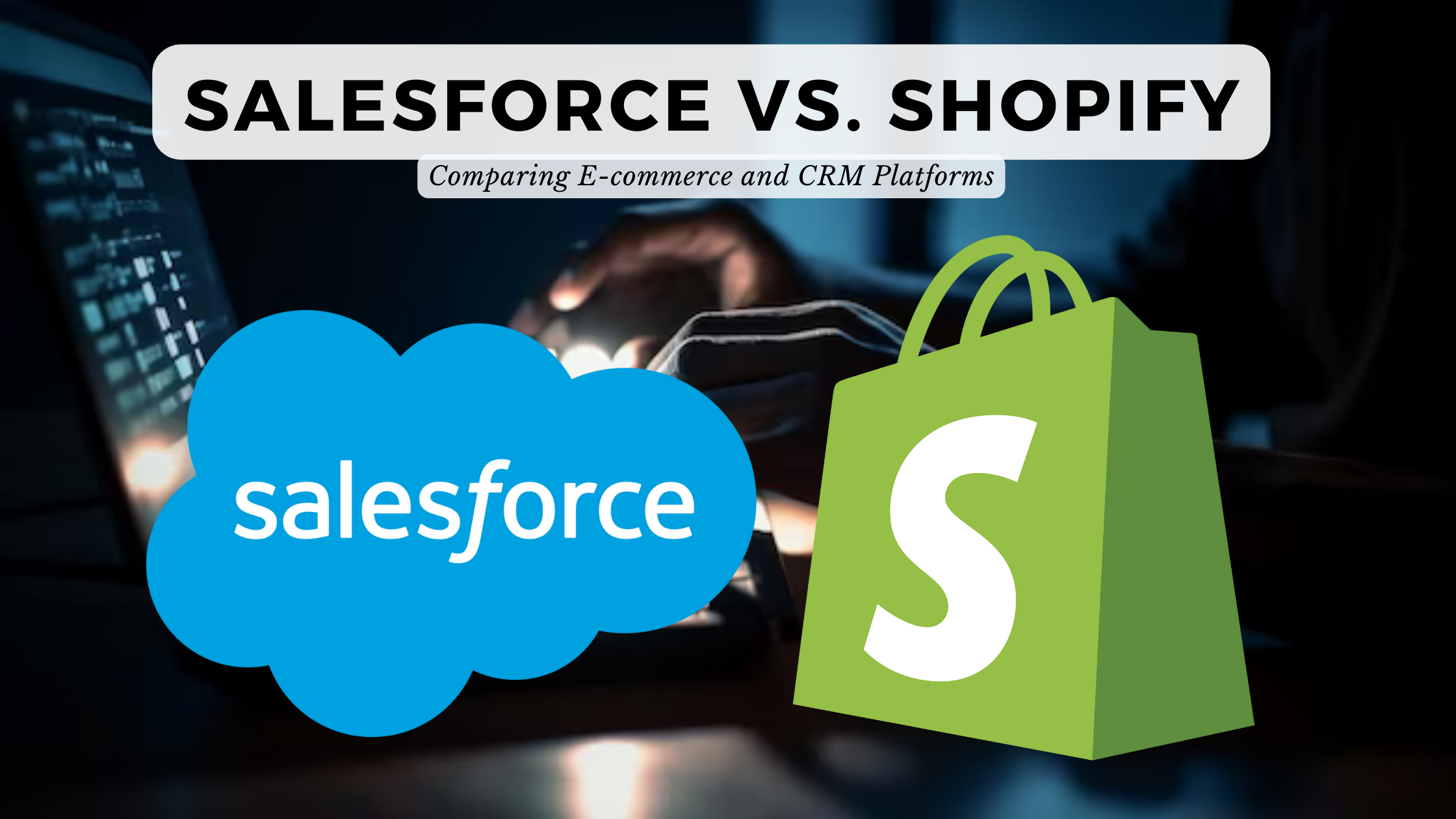Salesforce vs. Shopify: Comparing E-commerce and CRM Platforms
- Proposal Software Customer Relationship Management


Salesforce vs. Shopify: Comparing E-commerce and CRM Platforms
In the world of e-commerce and Customer Relationship Management (CRM), two platforms stand out: Salesforce and Shopify. Both platforms offer a range of features designed to help businesses manage their online presence and customer relationships. However, they cater to different needs and have distinct strengths12.
Salesforce: A Comprehensive CRM Powerhouse
Salesforce is a comprehensive CRM solution that offers a holistic suite of tools encompassing sales, customer service, marketing, and more1. It’s particularly suited for enterprise-level organizations, providing powerful analytics and intricate automation options that allow complex businesses to streamline their operations and optimize their customer relationships2. Salesforce’s unique strength lies in its depth, with a strategic focus on providing a flexible and user-friendly platform1.
Official Website: Salesforce
Shopify: A User-Friendly E-commerce Platform
Shopify, on the other hand, shines in its simplicity and focus. It is a meticulously crafted e-commerce platform, designed to empower even the most novice users to establish a professional online storefront2. Its unique selling point lies in its effortless usability combined with an extensive range of e-commerce capabilities, catering specifically to small and medium-sized businesses (SMBs) looking to make a splash in the digital marketplace2.
Official Website: Shopify
Relevant SaaS Products for E-commerce and CRM
Here are some relevant SaaS products that can complement or provide alternatives to Salesforce and Shopify:
- Zoho CRM: Offers a robust and sophisticated CRM tool with high customizability and integration with numerous other software3.
- Official Website: Zoho
- HubSpot: Provides a CRM for sales, marketing, and service, making it a comprehensive solution for businesses4.
- Official Website: HubSpot
- Microsoft Dynamics 365: A CRM solution that integrates sales, customer service, field service, and more3.
- Official Website: Microsoft Dynamics 365
- Pipedrive: A sales-focused CRM that offers features like pipeline management, email integration, and customizable workflows3.
- Official Website: Pipedrive
- Freshworks: Provides a suite of products including Freshsales (CRM software), Freshdesk (customer support software), and Freshservice (IT service management software)3.
- Official Website: Freshworks
- Monday.com: A work OS that powers teams to run processes, projects, and workflows in one digital workspace3.
- Official Website: Monday.com
Conclusion
Both Salesforce and Shopify are powerful platforms in their own right, each catering to different business needs. Salesforce is ideal for businesses seeking a comprehensive CRM solution with robust analytics and automation capabilities. Shopify, on the other hand, is perfect for SMBs looking for a user-friendly platform to establish their online storefront.
In addition to these, there are several other SaaS products available in the market that offer a range of features for e-commerce and CRM. Businesses should choose a platform that best aligns with their specific needs and objectives.
Relevant Links:





